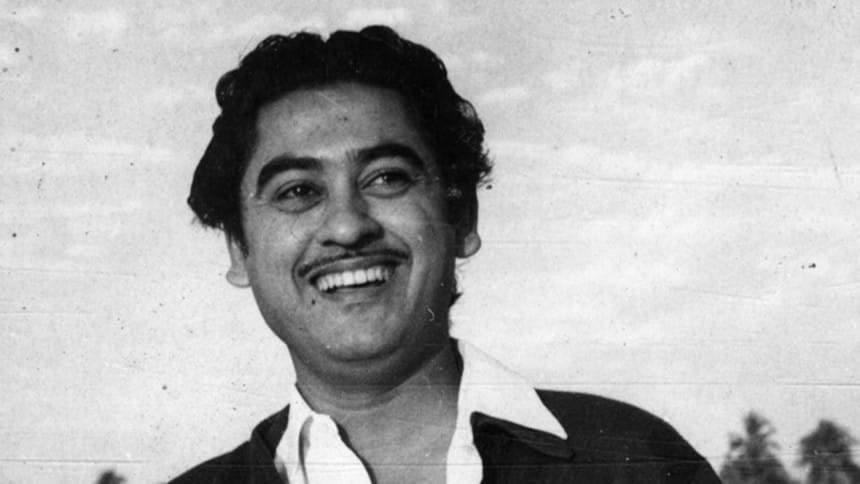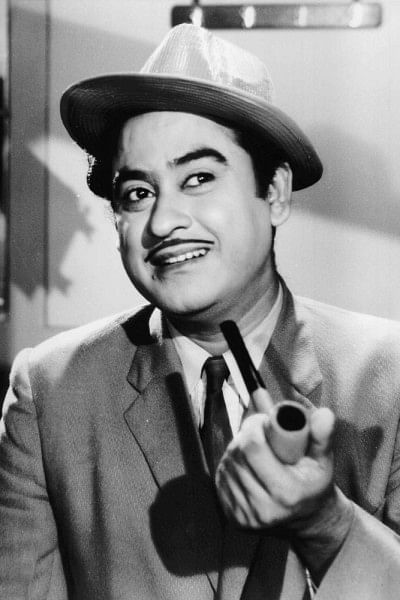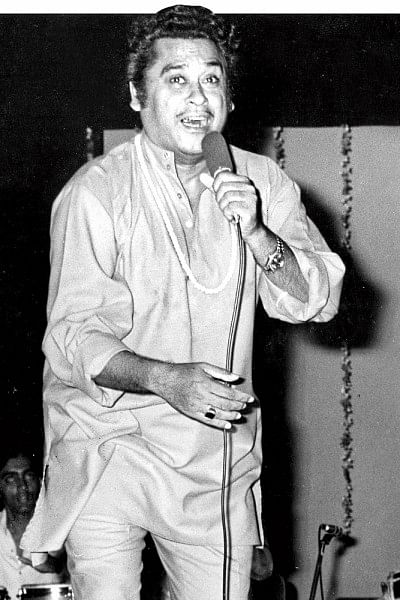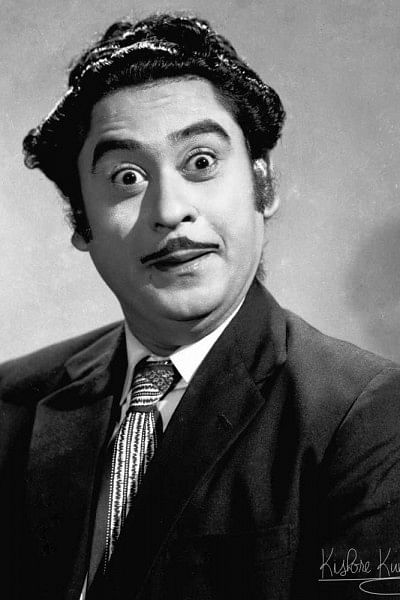Remembering Kishore Kumar: A symphony of versatility

Kishore Kumar, a name that resonates through the corridors of Indian music and cinema, is remembered not only as a playback singer but as a multi-talented artiste.
Born on August 4, 1929, in Khandwa, Madhya Pradesh, India, as Abhas Kumar Ganguly, Kishore da, as he is fondly called, left an indelible mark on the entertainment industry with his soulful voice, impeccable acting skills, and versatile compositions.

Kishore Kumar hailed from a family with a strong musical background. Kishore Kumar's initial foray into the world of cinema was as an actor, not a singer. He made his acting debut in the film "Shikari" in 1946. Despite a slow start in the acting domain, Kishore Kumar soon found his true calling in music.
His journey as a playback singer began in the 1948 film "Ziddi", where he sang the song "Marne Ki Duayen Kyon Mangu". Although his initial singing career faced challenges, it was his perseverance and unique style that gradually garnered attention.
Kishore Kumar's voice was not merely a medium of melody; it was an expression of emotions. His ability to emote through his songs, adapting effortlessly to the varying moods of the characters on screen, contributed significantly to the success of the films he lent his voice to. His charismatic persona, coupled with an extraordinary vocal range, made him the go-to playback singer for numerous actors. Whether it was the romantic renditions for Rajesh Khanna's films or the energetic numbers for Amitabh Bachchan, Kishore Kumar's voice transcended boundaries and touched the hearts of millions.

One of the key factors behind Kishore Kumar's enduring popularity is his unparalleled versatility. His ability to seamlessly transition between genres—from soulful romantic ballads to foot-tapping, energetic numbers—set him apart in an industry where specialisation often defined success. Whether it was the melancholic "Chookar mere man ko" or the effervescent "Pag ghungroo bandh", Kishore Kumar showcased a rare ability to mould his voice to fit the essence of the song.
His collaborations with legendary music directors, especially R D Burman, resulted in a musical fusion that produced some of the most iconic and memorable tunes in the history of Indian cinema. The magic they created together, be it the haunting melodies of "Kabhi Kabhi" or the playful notes of "Yeh jo mohabbat hai", contributed to the evergreen quality of Kishore Kumar's discography.
Kishore Kumar's contribution goes beyond just playback singing. His evocative renditions often became anthems for various stages of life and emotions. Whether it was the celebration of love, the pain of separation, the joy of success, or the introspection in solitude, Kishore Kumar had a song for every occasion.
His ability to convey complex emotions with simplicity struck a chord with the masses. Kishore da's songs became the soundtrack of countless lives, providing solace, inspiration, and a connection to the universal human experience.
While Kishore Kumar is primarily celebrated as a playback singer, his talent extended beyond singing. He was a proficient actor, director, and composer. His directorial venture, "Chalti Ka Naam Gaadi" (1958), starring himself along with his brothers Ashok Kumar and Anoop Kumar, showcased his comedic brilliance.

As a composer, Kishore Kumar lent his musical prowess to several films. The composition of the soul-stirring "Musafir hoon yaaron" from the film "Parichay" is a testament to his versatility.
Kishore Kumar's era is often referred to as the Golden Age of Bollywood music, and rightfully so. His contributions played a pivotal role in defining the cinematic and musical landscape of that time. The 1970s and 1980s, often considered the pinnacle of Hindi cinema, were enriched by Kishore Kumar's timeless melodies.
Kishore Kumar's legacy endures not only through his vast discography but also in the hearts of those inspired by his work. His influence goes beyond the realm of playback singing, as many contemporary artistes cite him as a major source of inspiration.
Kishore Kumar's popularity can be evaluated not only by the quantity of songs he performed and composed but also by the profound connection he made with his audience. Beyond geographical, linguistic, and cultural barriers, his voice connected with people from all walks of life. From the busy streets of Mumbai to the tranquil countryside, Kishore Kumar's melodies became the heartbeat of the nation.
Even after his untimely demise on this day in 1987, Kishore Kumar's songs continued to play a significant role in the Indian cultural landscape. These songs speak to the enduring character of his art because they are not just nostalgic for those who grew up listening to them but are also loved and discovered by younger generations as well.
Kishore Kumar is still regarded as a true icon in the history of Indian entertainment because of his unparalleled voice and wide range of skills. His adaptability as a musician and his capacity to stir up emotions through his compositions make him a timeless performer. Kishore Kumar's legacy endures as the globe hums along to his tunes, reminding us of the eternal ability of music to unite hearts across generations.

 For all latest news, follow The Daily Star's Google News channel.
For all latest news, follow The Daily Star's Google News channel. 










Comments